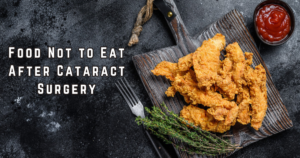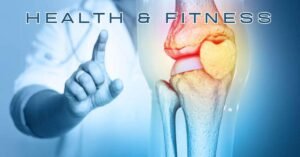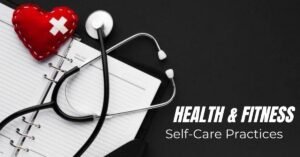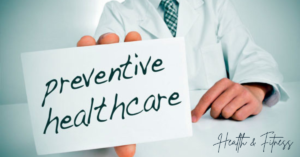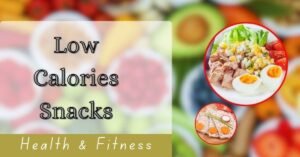Food Not to Eat After Cataract Surgery
Post-operative care plays a crucial role after cataract surgery, as this worldwide procedure provides patients with enhanced vision when performing one of the most successful surgeries. Patients must receive post-operative care because it leads to the best possible healing outcomes and recovery results. The foods patients eat, along with their adherence to doctor-caused eye procedures and avoidance of physical activities, play a crucial role in achieving a smooth recovery process. Following a nutritious diet aids healing processes and cuts down the production of inflammation, along with supporting regular health function, but some food items need to be left out to stop healing complications. The following discussion will examine foods that Food Not avoided after Cataract Surgery
Common Foods Not to Eat After Cataract Surgery
Highly Processed Foods
Almost all processed food products from fast food chains and packaged snacks and sugary confections contain unhealthy fats and refined sugars, as well as preservatives. Healing after cataract surgery requires choosing food choices that have high nutritional value, combined with proteins and healthy fats, while including fresh fruits and vegetables. The combination of high processed foods generates body inflammation and delivers minimal nutritional value, which negatively affects healing processes. These types of food products often result in weight increase, together with high blood pressure and diabetes, which reduce recovery capacity.
Salty Foods
High blood pressure develops from salt overload and harms eyesight, particularly after having cataract surgery. Your body retains fluid when you eat salted food items, including chips, as well as canned soups, processed meats, and salted snacks, so healing becomes more challenging. High sodium levels within the body present the possibility of additional eye problems, such as glaucoma, that could contribute to permanent eye health deterioration. Making salt consumption lower in your daily diet becomes essential alongside selecting vitamins and minerals-rich natural foods.
Fried and Fatty Foods
French fries, as well as fried chicken, together with battered fish, contain high levels of harmful trans fats and saturated fats. Fat consumption triggers inflammatory responses and raises oxidative stress while blocking the healing capabilities of the body. A high-fat diet can lead patients to become obese or develop heart disease, so surgery recovery times are likely to be negatively impacted. The healthier cooking methods, such as baking, grilling, steaming, and sautéing with olive oil or avocado oil, should replace the practice of frying foods.
Refined Carbohydrates
The consumption of white bread and pasta, along with pastries and sugary cereals, needs to be restricted after having cataract surgery. The digestion of refined carbohydrates generates glucose that leads to fast increases in blood sugar levels. Blood sugar volatility produces inflammation in addition to healing setbacks and raises infection possibilities. The consumption of refined carbohydrates leads to weight gain along with diabetes development which makes recovery more difficult. Complex carbohydrates such as whole grains and brown rice, as well as quinoa and oats, should be chosen as these contain fiber while providing steady energy to your body.

Caffeinated Beverages
Having a cup of coffee as a comfort source is acceptable, but high amounts of caffeine will affect the healing process after receiving cataract surgery. The substance diuretic in caffeine acts to create dehydration in the body. The strength of body healing declines when you are dehydrated, as dehydration causes dry and irritated eyes. Consuming too much caffeine results in elevated blood pressure that requires recovery to avoid. Reaching for decaffeinated beverages or herbal teas instead of caffeine would provide better morning stimulation than excess caffeine.
Sugary Beverages and Alcohol
Sodas, along with sweetened fruit juices and energy drinks, contain excessive empty calories because they trigger blood sugar increases that heighten the potential for type 2 diabetes development. Cataract surgery recovery could be slowed down as high blood sugar affects wound healing, along with producing inflammation. Substance abuse through alcohol consumption creates two health risks since it leads to dehydration in the body while interrupting the performance of medications that doctors have prescribed to you. Alcohol creates problems for the immune system, which causes the body to struggle in fighting off infections. Sugary beverages, together with alcohol, must be completely avoided while recovering from surgery.
Dairy Products High in Fat
The saturated fat content of whole milk and complete cheese, and cream functions to increase levels of body-wide inflammation and produces oxidative stress. Inflammation decreases healing abilities while simultaneously putting the eyes at a higher risk for infectious complications.
During recovery, the mucus buildup that dairy products create inside the body may cause discomfort to patients. People should choose non-dairy and low-fat yogurt along with almond milk or soy milk instead of full-fat dairy options.
Foods High in Sugar
Food high in sugar is one of the foods not to Eat After Cataract Surgery. Consuming refined-sugar foods matches the same warning given to limit sugary beverages. The list of dietary choices that provide minimum health benefits includes cakes with candies and cookies, among other types, along with ice cream, which triggers a quick rise in blood sugar. Taking too much sugar results in body inflammation while simultaneously making it harder for your immune system to work and delaying your wound recovery. The consumption of excessive amounts leads to weight gain, which afterward develops into diabetes and related conditions that harm recovery processes. Fruits make a good natural sweetener option instead of unhealthy foods.
Spicy and Acidic Foods
After surgery, people should limit spicy foods along with acidic foods, which include hot peppers combined with citrus fruit, tomatoes, and spicy condiments, because these foods can irritate the digestive system, leading to post-surgical discomfort. The recovery from cataract surgery requires patients to reduce all possible sources of stomach and gastrointestinal tract inflammation and irritation. The release of blood to your eyes from eating spicy food might negatively affect healing or result in visual discomfort. The best food choice for your condition includes bland items that simplify stomach digestion without causing any complications.

Allergenic Foods
Allergic reactions to food exist, but not all individuals experience such sensitivities, which include nuts, shellfish, eggs, or gluten, among other common items. Post-surgical body healing becomes impaired because allergic reactions trigger inflammation and swelling, and discomfort. Food allergies or sensitivities require your special attention because you must strictly avoid eating those problematic foods during recovery. Consult with a nutritionist to establish an allergen-free diet that helps your recovery process following surgery.
Conclusion
The life-transforming surgical treatment provides major visual and quality-of-life benefits to patients. The recovery period of surgery maintains equal importance with the surgical procedure itself, and the Food Not to Eat After Cataract Surgery. Proper recovery depends on nutritious foods containing vitamins along with minerals and antioxidants, and specific foods should be avoided because they can negatively affect healing. The foods you should avoid during your recovery period include processed foods with sugar, along with fried foods containing fat or excessive salt, as well as food items that raise blood sugar levels and trigger inflammation.
Make your food choices centered around vitamins A, E, and C, which exist in leafy greens, whole grains, lean proteins, and vitamin-rich fruits, so your eyes can heal better in addition to improving their health. Adequate hydration plays a critical role in recovery; thus, people should maintain regular water consumption during the entire day. The dietary guidelines mentioned here will help your recovery speed up while promoting better vision outcomes over time. End each decision about your post-operative care with a visit to your healthcare provider to obtain specific professional guidance.

